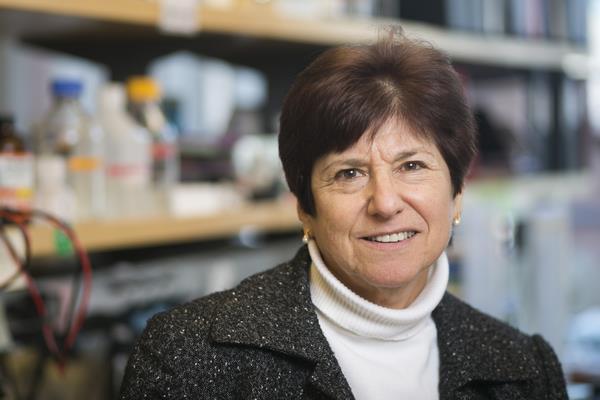
Gail Sonenshein

Research/Areas of Interest
For over 25 years, our research has focused on elucidating the roles of nuclear oncogenes and their targets in cancer, with a particular focus on breast cancer. My group made seminal contributions to our understanding of the Myc oncogene, including the first demonstration of dysregulated cell cycle control of c-Myc gene expression in cancers driven by Ras signaling and the discovery that transcription of c-Myc is regulated by nuclear NF-.B. In paradigm-shifting discoveries, we found that the NF-.B family of transcription factors is aberrantly active in breast cancer and promotes tumor cell survival. More recently we identified the cell surface transmembrane ADAM8 sheddase protein, which is non-essential under physiological conditions, as a downstream target of an NF-.B signaling pathway. Importantly, we showed that ADAM8 is an independent predictor of poor clinical outcome, and a driver of triple-negative breast cancer (TNBC) growth and metastasis. High levels of ADAM8 (ADAM8+) were detected in 34% of TNBC patients and in 48% of all breast cancer metastases but absent in normal breast tissue. More recently, we determined that 30% of all breast cancers are ADAM8 positive. Orthotopic and cardiac mouse models validated the transmembrane ADAM8 protein as a promising, accessible, novel target for antibody-based therapy of TNBC and metastatic breast disease. Work is in progress to bring an anti-ADAM8 antibody to the clinic for cancer therapy and to elucidate the roles of miRNAs as markers of exposure to environmental carcinogens.
Education
- Doctor of Philosophy, Massachusetts Institute of Technology, Cambridge, United States, 1970
- Bachelor of Science, State University of New York Polytechnic Institute, United States, 1965